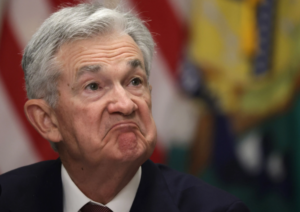$EURUSD $VGK $EZU
#Eurozone #PMI #Manufacturing #ServiceSector #EconomicDecline #Euro #Inflation #RecessionRisks #EuropeMarkets #ECB #EuropeanEconomy #GlobalTrade
The Eurozone is witnessing a continued decline in overall economic activity, as data from the latest Purchasing Managers’ Index (PMI) survey reveals. This downturn is being driven primarily by ongoing weakness in the manufacturing sector, which has struggled to recover in the face of persistent challenges such as supply chain disruptions, rising energy prices, and softening global demand. The manufacturing output declined for the tenth consecutive month, reflecting a lack of significant recovery in the production lines that cater to global trade.
On the other hand, the Eurozone’s services sector continues to show some resilience, with modest but consistent growth. This trend has provided a slight cushion to the bloc’s overall economic malaise. However, the growth in services has so far been insufficient to offset the deeper contraction within manufacturing. Services industries, including financial, healthcare, and professional services, have benefited from reopening trends and recovering consumer confidence post-COVID-19. Still, the broader economic outlook remains quite fragile as the pressures from inflation and interest rate hikes spearheaded by the European Central Bank (ECB) begin to bite harder.
Germany, the largest economy in the Eurozone, acts as a significant contributor to the recessionary signals. Its dominant manufacturing industry remains in contraction, and the slowdown is spreading throughout the bloc. Businesses across Europe are increasingly cautious about future demand prospects as global uncertainties, including the war in Ukraine, ongoing trade tensions, and monetary policy tightening cycles worldwide, weigh heavily on growth forecasts. Additionally, countries like Italy and France, which also have significant manufacturing bases, have reported slower activity in recent months, exacerbating fears of a deeper recession in the region.
The overall economic scenario suggests that the Eurozone may remain “stuck in a rut” unless there is a significant reversal in the manufacturing sector’s fortunes. Despite modest successes in services, it is clear that a broad-based recovery has yet to be achieved by the bloc. With inflation remaining persistently high and energy crises still unfolding, especially against the backdrop of geopolitical risk, economic activity will likely remain contained for the foreseeable future. Policymakers at the European Central Bank have signaled that they are prepared to adjust interest rates as needed, though this risks further suppressing growth and pushing economies closer to recession.







Comments are closed.